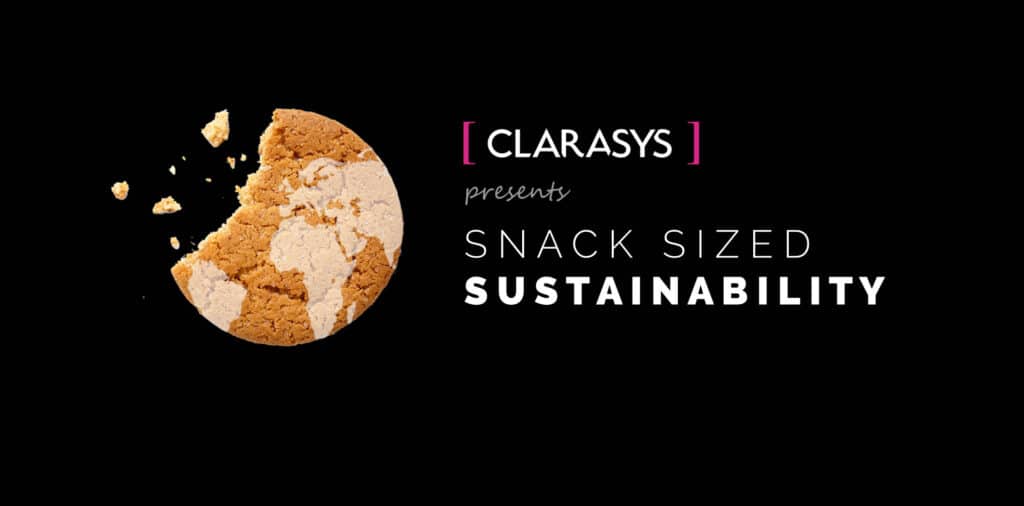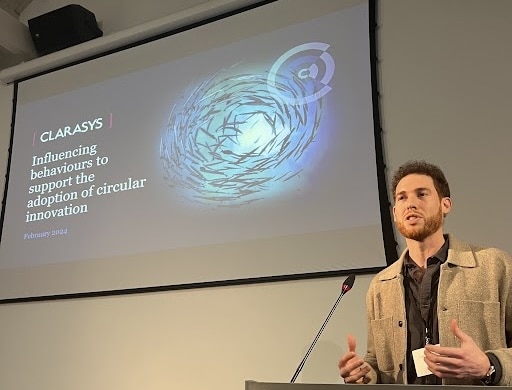Tune in to hear how human rights relate to sustainability, your organization and how you can assess it in less than five minutes.
Human rights: how do they relate to sustainability? – PODCAST
Human rights: how do they relate to sustainability? – PODCAST
Tune in to hear how human rights relate to sustainability, your organization and how you can assess it in less than five minutes.

In the second episode of our Snack-sized sustainability podcast, Sarah Hammond discusses the term human rights.
Tune in to hear a definition, how they relate to sustainability, and benefits for those who assess what they truly mean at their organisation.
Listen here or read on for an edited transcript.
Welcome to “Snack-sized sustainability”. Part of our Simply Sustainability podcast brought to you by Clarasys.
Each snippet will see me, Sarah Hammond, discuss a key sustainability concept in less than five minutes. So grab a snack and get comfortable.
Today we are going to look at the term human rights.
Now we may hear this and think we understand exactly what it means, but do we understand exactly what it means in relation to sustainability or why it should be important to your organization?
Today we are going to discuss how human rights relate to sustainability, how it relates to your organization, and how you can assess it.
What are human rights defined as?
So let’s start off with a definition.
According to the Equality and Human Rights Commission, human rights are the basic rights and freedoms that belong to every person in the world from birth until death, they apply, regardless of why you’re from what you believe or how you choose to live your life.
They can never be taken away, although they can sometimes be restricted. For example, if a person breaks a law or in the interest of national security. And in Britain, ours are protected by the Human Rights Act 1998.
So how does this closely relate to sustainability?
To name just a few examples, human rights promote equal working opportunities. They promote the right to have access to education. They promote the right to protect the environment and they promote that everyone has their basic needs met. All of these and more, are core objectives of sustainability, particularly when we think of the UN Sustainable Development Goals.
But why should organizations care about human rights?
Whilst legislation enforces and enables organizations to meet certain standards, for example, working hours and pay, actually it’s incredibly important that every organization specifically assesses what human rights mean for their organization.
This is because having them met means very different things within different industries and even at different companies. For example, the human rights of employees and indeed customers at a financial firm differs greatly from those who are working in a medical lab.
In addition to it being the right thing to do, there are actually many benefits for organisations who assess what human rights mean at their company.
Benefits for organisations
1) It creates a more stable and productive workforce by decreasing the likelihood of an issue or a violation occurring.
2) It ensures that an organisation has access to the best talent and retains its employees as a result. Employees want to work for a company that cares and that doesn’t put them in harm’s way.
3) It reduces the chances of legal costs and disruption, and
4) It enables access for organizations to ethical investors and new business opportunities as a result.
But how do we assess and report on human rights?
Formal reports only really occur when there has been a violation. So from an organizational perspective, the less formal reports, the better. However, reporting in terms of showing how you adhere, and how your organization considers them, is vital.
The UN has documented some helpful guiding principles, which say: to assess the impacts on people and not the business; to assess the impact against all internationally recognized human rights; to draw on external or independent external human rights expertise, and to highlight the concerns of all affected stakeholder groups.
Three key questions every organization should be asking themselves today are:
What are we doing to ensure that we are respecting human rights and that is part of our business model?
How do we understand any negative impacts that we are having?
And how do we take steps to mitigate and reduce these risks?
A core element of answering these questions is to make it part of your company structure. And to have a really clear, focused and targeted stakeholder engagement plan.
If you want to talk more about how to do this at your organization, please feel free to reach out. We’d love to discuss it with you.
Thank you for listening to Snack-sized sustainability. We hope you enjoyed it and learned something new. Please do let us know if there are any key sustainability concepts you’d like us to cover, and we look forward to welcoming you back on our next episode.

